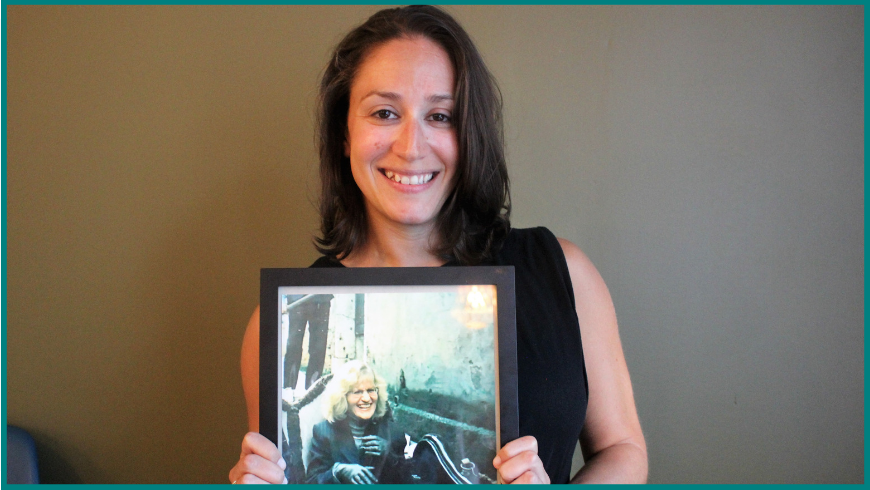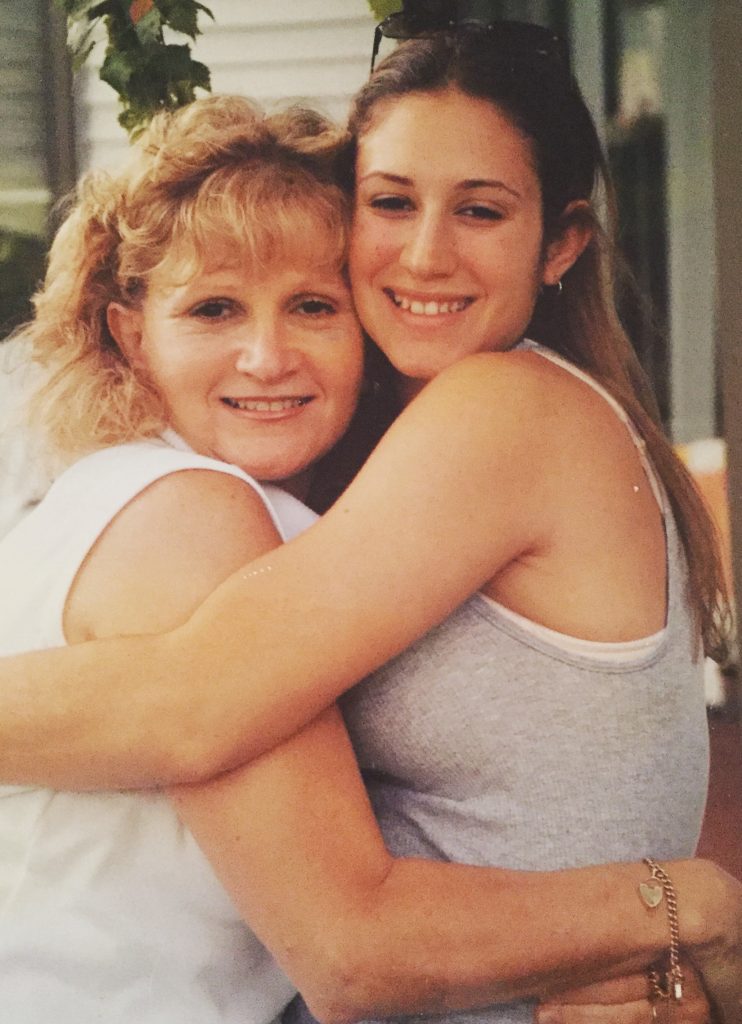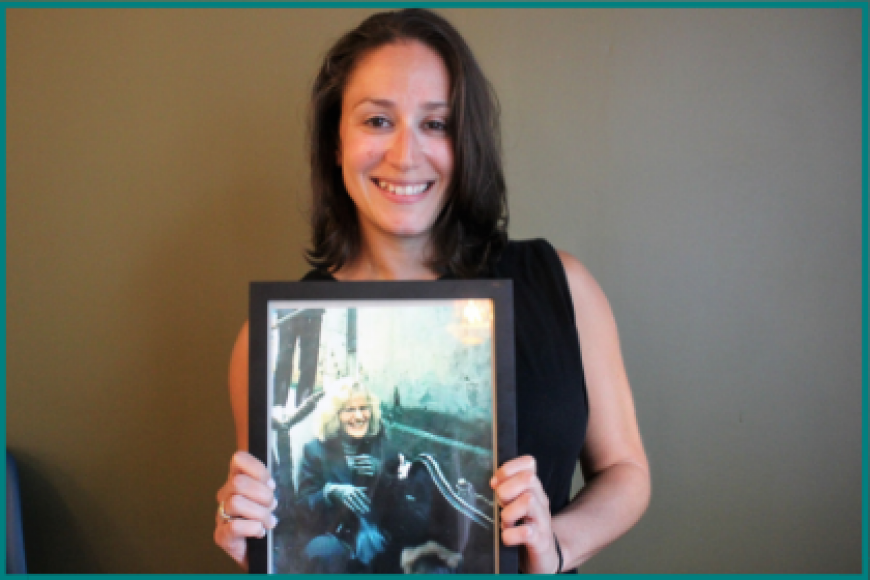My mom was the heart of my family; the life force

Meet Lauren Marcus
Lauren Marcus is a member of the Tina’s Wish Junior Advisory Board. Lauren lost her mother, Debbie Marcus, in 2008 after battling ovarian cancer for four years. Tina’s Wish is grateful to Lauren for sharing her story with us about her experiences during and after her mom’s battle with ovarian cancer.
Q&A with Lauren
How would you describe your mother? What were her best qualities?
My mom was the heart of our family; the life force. It’s hard to describe her or anyone really in one way. A teacher, artist, writer, pianist, mother, wife, daughter, sister, friend. She had a way of pulling people towards her. Or, maybe I just feel that way because that is what she was for me. She was my center. As an English teacher, she was always writing stories to read to her students so they could emulate. This wasn’t always so great when your life was on display, but I loved it deep down. I would wake up on Saturday mornings to her playing the piano. That was the best.
“My mom was the heart of our family; the life force.”
It is so hard to remember her in this way. What else? Oh, she loved M&Ms and candy corn, and nonpareils. You could say she had a sweet tooth. When we were cleaning out the house after she passed, we found M&Ms hidden everywhere, and I mean everywhere!
My mom stressed family before all else growing up. I am one of four and even though she is not here, I think we still gravitate around her somehow. She taught us how to stay together.
“A teacher, artist, writer, pianist, mother, wife, daughter, sister, friend. She had a way of pulling people towards her.”
Can you tell us a bit about your mother’s cancer diagnosis? How did it affect your family?
My mom fought the disease for four years. She was diagnosed when I was about 20 years old. I was a junior in college about to go off to study abroad in Australia. She passed when I was 24, when she was only 58 years old.
Being sick was really hard for my mom – I don’t know who it is not hard for.
In the beginning, there was a lot of hope, at least on my part (I don’t know if my parents had the same feeling). I grew up seeing my aunt fight breast cancer for 20 years, so I had a skewed vision of what life with cancer could look like. It made me believe that my mom could live with any cancer for a long time. I was wrong.
Those weren’t easy years, but my dad was a rock and we were all always home together, pretty much every weekend. We all played a role. I was her massage therapist!
After my mom passed, I became very aware of my own mortality, in a way that I had never been before. Especially having the BRCA gene, my fear of cancer at this moment intensified and I was mourning her while also knowing I would have to make my own medical and health choices at some point – choices she would have made had she known about her risk. We grow up thinking we are invincible, but we’re not.
“After my mom passed, I became very aware of my own mortality, in a way that I had never been before.”
What advice would you give to other families of women who are currently battling ovarian cancer or just lost someone to ovarian cancer?
I would tell them to be compassionate and patient. My siblings and I were compassionate with my mom, but we were also short tempered with her at times because it was frustrating to hear her talk about dying. It’s hard to stay calm all the time. But, be compassionate with your loved one who is sick, with your family, and with yourself. We’re not perfect people.
Talk to people who are in a similar situation if you can. For me, it felt that other people didn’t “get it.” I did not feel satisfied or comforted with friends telling me it would “be ok.” Which leads me to another point – you have to be compassionate and patient with others who are trying to comfort you.
Then there is mourning. It was interesting because even though I had my family and siblings to lean on, we were all going through the process in our own ways. Mourning is an extremely complex and personal process and it doesn’t ever really end. It just evolves over time, like waves.
“Be compassionate – with your loved one who is sick, with your family, and with yourself. We’re not perfect people.”


